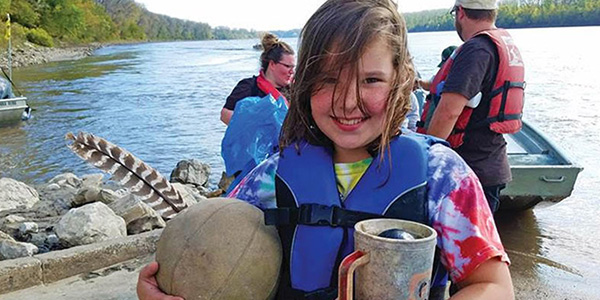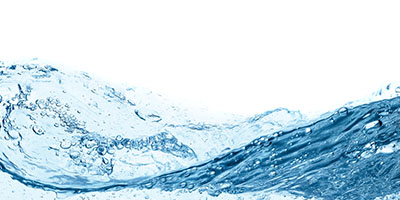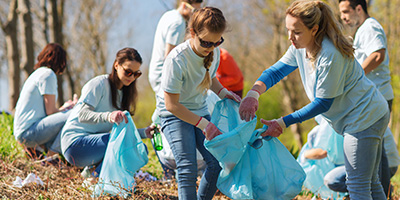Making a Difference on International Coastal Cleanup Day 2020

International Coastal Cleanup Day
Every year, International Coastal Cleanup Day brings together millions of volunteers to collect and document the trash that is littering their coastline. This litter cleanup and prevention movement started by the Ocean Conservancy has grown over the last 30 years to include events at beaches, lakes and rivers in more than 100 countries. The event connects communities around the globe with a common goal of eliminating litter.
Why are Coastal Cleanups Important?
- Water pollution in the form of plastic and toxic chemicals can be harmful to humans by contaminating food and fresh water supplies.
- Animals can easily mistake litter for food, putting marine wildlife at risk of poisoning.
- Participating in a waterway cleanup brings you closer to your community and raises environmental awareness.
- Maintaining clean, healthy beaches and waterways is vital for regions that depend on tourism and water usage.
Local Organizations Making a Difference
Budget Dumpster celebrates International Coastal Cleanup Day by supporting organizations and volunteer groups who are working to remove trash from our oceans and waterways. In past years, we’ve helped organizations including Keep Lee County Beautiful, SeaGrant and Keep Martin Beautiful remove thousands of pounds of marine debris from waterways. Beyond this day, we continually support community revitalization efforts nationwide.
This year, we’re proud to provide donations to support:
Missouri River Relief
Missouri River Relief is an action-oriented, volunteer and equipment-based organization which has engaged 27,865 volunteers to clean up 940 tons of trash from the river since their inception in 2001. In addition, the organization conducts educational programs for students and teachers to build support for a healthy river.


“Missouri River Relief is celebrating International Coastal Cleanup Day by hosting an equipment and volunteer-based cleanup on the longest river in North America, the Missouri. This cleanup in St. Louis, MO will put volunteers on a 10-mile stretch of the Missouri River to work in teams to remove tons of illegally and improperly disposed of waste, white goods and waste tires. The Missouri River connects to the Mississippi, later draining into the Gulf of Mexico. By removing waste upstream, we ensure that these materials never make it to the coast. Afterall, we all live downstream.”
Kevin Tosie, Operations Manager | Missouri River Relief
Friends of Great Salt Lake
Founded in 1994, the mission of Friends of Great Salt Lake is to preserve and protect the Great Salt Lake and its fragile ecosystem. The organization works to increase public awareness and appreciation of the lake through education, research, advocacy and events.

“To celebrate International Coastal Cleanup 2020, we are encouraging our community to get outside and collect trash from anywhere within our watershed (while staying safe and practicing social distancing). Because all waterways in our watershed flow to Great Salt Lake, community members can collect trash anywhere within our terminal basin! Whether on the beach of Great Salt Lake, along the Jordan River Parkway, or in runoff gutters along your own street – anywhere we remove trash will improve water quality, wildlife habitat, and the health of the Great Salt Lake ecosystem.”
Katie Newburn, Education and Outreach Director | Friends of Great Salt Lake
How to Host a Solo Coastal Cleanup
Interested in participating in International Coastal Cleanup Day 2020 while maintaining a social distance? Use these eight steps from The Ocean Conservancy to plan a safe small group or individual cleanup.
- Pick a location that is secluded and will allow for social distancing.
- Gather materials, including Personal Protective Equipment (masks and gloves), hand sanitizer, grabbers, trash bags, closed toed shoes and a reusable water bottle.
- Download and use the Clean Swell app to collect data about the amount and type of debris you collect.
- Safely collect and dispose of litter.
- When you’re done, safely remove and throw away your gloves. Thoroughly wash your hands and arms after the cleanup.
- Record data about the litter you cleaned up.
- Dispose of waste.
- Sanitize any gear used during this cleanup.
When you’re finished, use #CleanOn to tweet and post about your efforts on social media.
Looking to save water in your daily life? Check out our water conservation tips!



